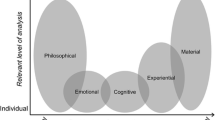Abstract
This paper explores the effect of the perception of externalities (PE) on residential water consumption. Externalities occur when individuals make decisions that harm others, without concern for the impact or feeling a need to compensate for the harm. The aim of this study was to investigate whether PE affects people's motivation to conserve water, and, consequently, the practice of residential water consumption. Two hundred eighty Mexican citizens responded to a questionnaire investigating how they perceived that other individuals in their community wasted water. Respondents were also asked about their motives to conserve water, and direct observations of individual water consumption were recorded. Results were processed within a structural equations model, which revealed that motives to conserve water significantly inhibit water consumption. Since the perception of externalities also inhibits conservation motives, the resulting effect of PE on water consumption is positive. This result means that the more people perceive that others waste water, the less their conservation motives, and, therefore, the more their own water consumption.
Similar content being viewed by others
Author information
Authors and Affiliations
Rights and permissions
About this article
Cite this article
CORRAL-VERDUGO, V., FRÍAS-ARMENTA, M., PÉREZ-URIAS, F. et al. Residential Water Consumption, Motivation for Conserving Water and the Continuing Tragedy of the Commons. Environmental Management 30, 527–535 (2002). https://doi.org/10.1007/s00267-002-2599-5
Issue Date:
DOI: https://doi.org/10.1007/s00267-002-2599-5



